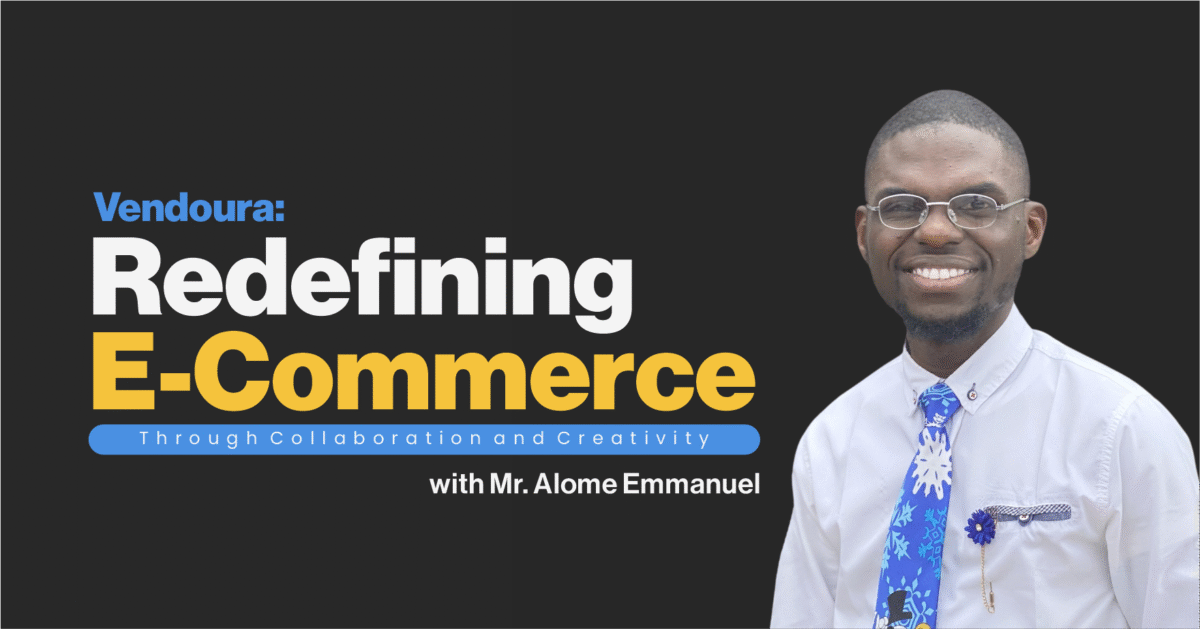In today’s fast-changing digital economy, small and medium-sized enterprises (SMEs) face immense challenges. While passion and creativity drive many founders, the realities of business and finance often become stumbling blocks that stifle growth.
Out of this reality came Vendoura, a platform designed not just as an e-commerce marketplace, but as a movement to empower creatives and vendors across Nigeria and beyond.
We sat down with the Founder of Vendoura; Mr. Alome Emmanuel, to understand the vision behind the platform, the gaps it seeks to fill, and the future it is building for vendors.
The Inspiration Behind Vendoura
When asked what inspired the birth of Vendoura, Mr. Emmanuel shared a deeply personal perspective:
A friend once asked me, what business would you start if money wasn’t a problem? Without hesitation, I said I’d solve the increasing failure of SMEs in Nigeria. Many creatives start out simply because they love creating. But in this tough world, their art is often undervalued, leaving them broken and hopeless. Vendoura was born out of the desire to change that narrative.
The platform aims to give SMEs and creatives the tools, support, and community they need to thrive—not just survive—in today’s competitive economy.
How Vendoura Differs From Traditional Platforms
Unlike conventional e-commerce models, Vendoura is built on collaboration rather than competition. Mr. Emmanuel highlights how major corporations thrive through partnerships:
- 52% of companies generate about 20% of their revenue from partnerships.
- 92% of Microsoft’s revenue comes from partnerships.
- 80% of Spotify’s revenue is driven by ecosystem partnerships.
If big businesses understand the value of partnerships, why shouldn’t small enterprises?” He asked. “Vendoura is here to educate creatives on how the game works—and how to play it to their advantage without selling out to big brands for peanuts.
Community at the Heart of Vendoura
At the core of Vendoura’s vision is community. The platform’s built-in community feature encourages creatives to connect, collaborate, and find inspiration in one another.
Creatives are unique, but their differences shouldn’t isolate them,” Mr. Emmanuel explains. “Instead, their niches should inform and enrich their creativity. When products complement instead of compete, the whole ecosystem thrives.
This approach ensures that every vendor not only sells but grows within a network that sustains productivity and profitability for all.
Scaling Vendors from Local to Global
Vendoura’s ambition goes far beyond local success. The platform has a roadmap to help vendors scale globally through:
- Marketing and branding support.
- Strategic events to attract key economic stakeholders.
- Training, seminars, and mentorship programs.
- Pathways for mass production and export readiness.
Mr. Emmanuel draws a parallel with the music industry, where record labels launch multiple artists through collaborations before spotlighting them individually.
There’s so much we can achieve together. Just as every part of a car or phone isn’t made in the same factory but works perfectly as one, vendors can unite under shared principles and thrive.
Looking Ahead: A Bold Future
When asked about the future, Mr. Emmanuel spoke with conviction and hope:
I see Nigerians and creatives taking the economy back into their own hands. They’ll own the wealth in circulation and shape the decisions that determine the fate of this country—and even Africa.
For Vendoura, the mission is clear: to transform e-commerce into a collaborative force that empowers SMEs, uplifts creativity, and reshapes economic power dynamics.
Vendoura isn’t just an e-commerce platform—it’s a movement. It’s where creativity meets collaboration, and where small businesses discover their true potential on the global stage.

